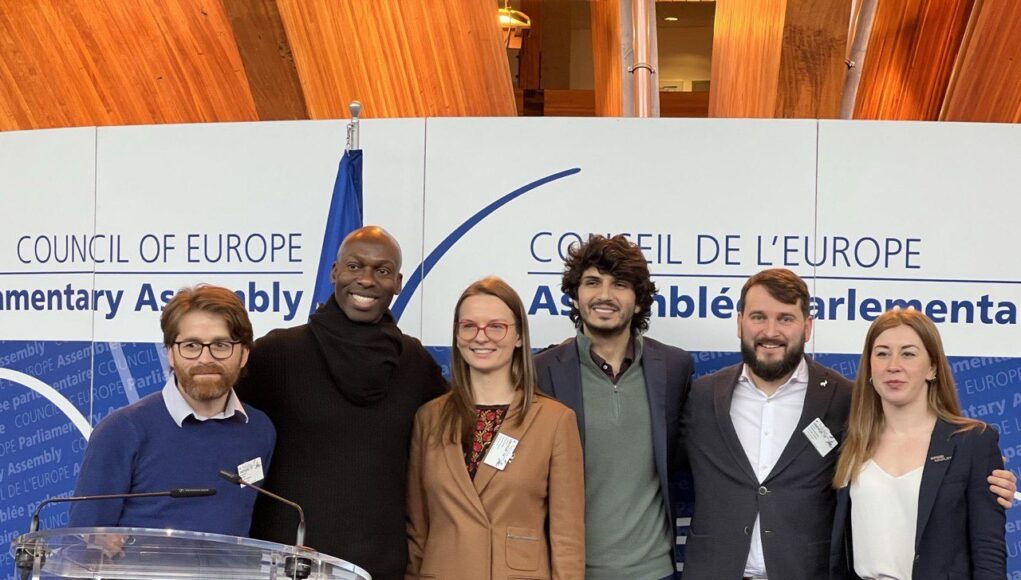When banks shut her out, Lyudmyla Kozlovska kept going anyway.
She grew up in Sevastopol, Crimea. As a teenager, her family faced political persecution. Strangers showed up to help.
When she asked why, the answer stuck for life: “Because your family was doing a lot of good things and other people asked us to come.” That moment set her on a path to start the Open Dialogue Foundation and defend people crushed by bad governments.
Years later, after work on Ukraine’s Orange Revolution and a PhD move to Poland, she founded the organization and went to work across Ukraine, Central Asia, Russia, Moldova, Belarus, and the EU. The idea was simple. You do not have peace at home if your neighbors are at war.
Then came the hit.
The Playbook They Used On Her
Kozlovska calls it transnational financial repression. Authoritarian regimes use international agreements, AML and counterterrorism rules, travel databases, and cyber laws to flag people as threats and cut them off from money. In 2018, she lived it.
“Even with all my connections in European parliaments, I could not protect my financial data,” she said. “They weaponized anti-money-laundering and counterterrorism regulations to label me as a security threat with no legal grounds, just because of my human rights work.”
The result was ugly. “My family, my organization, company, donors, partners, even our cleaning lady. Everyone around us was financially excluded from Western institutions.” Everything stops when a bank pulls the plug. Salaries. Rent. Legal help. Humanitarian aid.
So she reached for the only tool still within reach.
Why Bitcoin
“I didn’t have other tools,” Kozlovska said. “What you have in your hands is Bitcoin. Peer to peer.”
That was the entry point. No exchange account. No gate to beg at. Just direct settlement and money you can hold yourself.
Bitcoin in self custody meant she could still move aid to political prisoners, refugees, and families on the run. It meant donors could still help without waiting for a compliance department in another country to feel brave that week.
Back then, it was easier to find local traders in Europe. Today, she argues, EU rules treat much of bitcoin in self custody as suspicious when you touch regulated institutions.
Belgium even passed a right to a bank account, but global banks still obey the FATF first. If a Belgian bank wants to keep its worldwide licenses, it follows the Washington’s standard.
That is why a lot of her advocacy now points to the United States.
Why The U.S. Matters
“US is a key jurisdiction which sets standards on financial regulation, privacy, travel data privacy, communication data, cyber security,” Kozlovska said. Label a privacy tool as criminal and you kill investment.
Kill investment and you lose the freedom tech that keeps people alive when regimes come knocking.
Her group helped launch the Building True Change Coalition to explain exactly how Bitcoin supports human rights and fast humanitarian aid.
They push back on rules that punish donors who want to help. They teach the difference between targeted policing and surveillance that treats every citizen like a suspect.
She is blunt about the stakes. “With the speed of technology right now, if we do not build privacy-protecting tools, there will be nothing to discuss in five years.”
The Part Most People Miss
A lot of citizens in safe countries assume this will never touch them. Kozlovska shakes her head.
There are quiet tools that never make the news. She mentions Interpol purple notices and cross-border data requests, that can be abused to hoover up your travel, communications, and financial history.
“Your business can be destroyed by a simple request you will never know about,” she said. “How many startups and prominent people in Western countries were destroyed by third country competitors and they were not aware how it was possible?”
That is not an activist problem. That is a national security problem. And it is one reason she keeps repeating the same basic advice. Learn privacy. Use privacy. Have the fire escape before the fire.
Related Reading: Lyudmyla Kozlovska’s written Testimony in the Congress
AI, Freedom Tech, and The Next Five Years
Kozlovska sees a split future. Centralized AI can become a dragnet. Open tools can become a shield. She is not romantic about it. She is recruiting.
“AI can be used against us, but it can also be used by us to protect us,” she said.
“If we build a coalition in the next five years, we can change reality…We can say oh it’s dangerous or we can build an army of our tech developers who will be on the side of privacy and who will protect us, who will help us build our secure digital space with the most advanced technology.”
That coalition is technical and political. Developers. Donors. Victims willing to testify. Lawyers who can teach law enforcement how to spot financial repression instead of becoming part of it.
And yes, regulators who are willing to hear real stories instead of just slide decks. “Institutions are people,” she said. “You have to spend time to educate them.”

What The Open Dialogue Foundation Is Doing Now
- Using Bitcoin to route aid when banks block accounts.
- Training policymakers on how AML and counterterror rules get abused against innocent people.
- Leading the Building True Change Coalition so privacy in payments is not treated as a crime.
- Pushing an accountability effort on transnational financial repression.
- Building bridges between engineers, rights groups, and lawmakers, so freedom tech gets built and funded.
They also work on practical innovations that get lost in policy talk. One example she raised was bionic hand programs for Ukrainian veterans.
You cannot do that if every cross-border payment raises a red flag. You need fast money that settles. You need donors who are not punished for caring. You need Bitcoin.

A Clear Ask
Kozlovska is not shy about help. “Without American philanthropists and donors, democracy will not survive,” she said. The request is simple. Support the work.
Lend time and expertise. If you are a victim of this kind of repression and your lawyer told you to stay quiet, talk to them anyway. Your case may be the example that fixes the rule.
And for anyone still wondering whether this is their fight, she offers a reminder from her own life.
She did not know the names of the people who helped her family in Crimea. They showed up because someone asked them to. That is how networks of care actually work. Quiet hands. Real money. No permission slips.
The Last Word
“We are not just victims,” Lyudmyla Kozlovska said. “We are overcoming it and building the future.”
That future needs money you can hold, not just money you are allowed to touch. It needs bitcoin in self custody for the moment the bank says no.
It needs coders who ship privacy by default. It needs donors who refuse to be scared off by bad labels. And it needs readers who can spot the difference between safety and control.
If you want to help, start there.

100% of the sats go to the author






